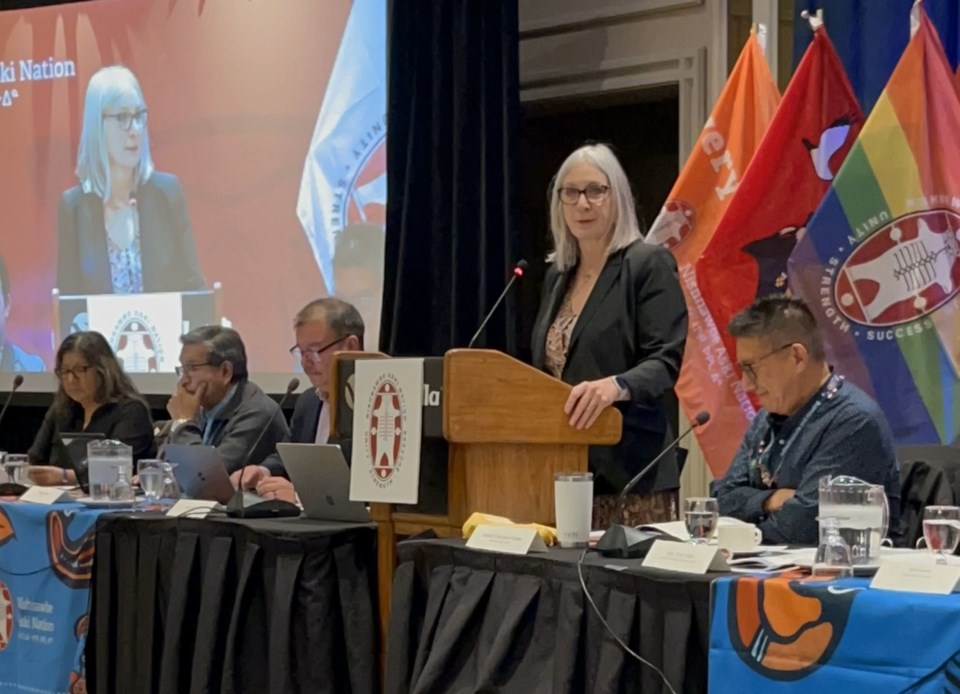THUNDER BAY — An ever shorter winter road season "places a huge stress on communities," said Patty Hajdu, MP for Thunder Bay-Superior North.
Hajdu met with leaders from Nishnawbe Aski Nation and First Nations, at a roundtable on Friday to discuss the challenges posed by shortened winter roads seasons.
Climate change has dramatically shortened the winter road season in recent years, Hajdu said after the roundtable meeting.
Hajdu announced an additional $20 million in federal funding over four years for winter roads for northern First Nations in Ontario.
This new funding supplements $7 million previously allocated to those communities to help address the challenges posed by shorter winter road seasons.
Northern remote First Nations rely on ice roads across frozen waterways in winter to truck in fuel, construction supplies and other essential goods.
“One community talked about having approval for 20 modular units and only being able to get 13 through the winter roads. And of course, the cost of airlifting, this is just astronomical,” she told reporters at a news conference.
“So I convened a winter roads conference and invited the province of Ontario, (which) has a huge responsibility in building those roads and working with communities. They unfortunately did not come to the conference, but it was still very productive nonetheless.”
Hajdu also announced the creation of “a Far North working committee with the province of Ontario and with communities that are represented by Nishnawbe Aski Nation and Matawa (First Nations)” to find short- and long-term solutions to First Nations’ winter roads challenges.
“Canada is committed to provide the funding for this committee to be stood up, but also for our communities to have the capacity to participate if Ontario actually decides that they want to come to the committee and join.”
Nishnawbe Aski Nation, which represents 49 First Nations across northern Ontario, declared a “winter roads state of emergency” in early February this year as warm winter weather gave northern reserves little to no winter road season.
“I agree with the minister that this is an all-hands-on-deck moment, and I appreciate her willingness to sit at the table with us and act on these serious issues,” NAN Grand Chief Alvin Fiddler said in a news release issued Friday.
“In addition to this funding, I am encouraged by the minister’s commitment to develop a First Nations-led road agency. We look forward to beginning this work with full engagement with First Nations communities.”
Fiddler also said he was “disappointed that provincial political leaders were not here today. We are still in a state of emergency. Many of the issues we are discussing require the province to be at the table.”
